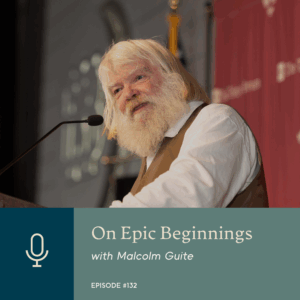In a speech to the Hudson Institute last week, Indiana Governor Mitch Daniels, in accepting the Herman Kahn Award, spoke admiringly of Kahn. Daniels quoted from Kahn's 1982 book, The Coming Boom (it can be found near the 27-minute mark): “It would be most useful to redesign the tax system to discourage consumption and encourage savings and investment. One obvious possibility is a value added tax and a flat income tax, with the only exception being a lower standard deduction.” Daniels went on to add: “That might suit our current situation pretty well. It might also fit Bill Simon's line in the late 70s that the nation should have a tax system that looks like someone designed it on purpose.”
Governor Daniels's statement was too much for Grover Norquist of Americans for Tax Reform, who said:
This is outside the bounds of acceptable modern Republican thought, and it is only the zone of extremely left-wing Democrats who publicly talk about those things because all Democrats pretending to be moderates wouldn't touch it with a 10-foot pole. Absent some explanation, such as large quantities of crystal meth, this is disqualifying. This is beyond the pale.
Grover has given himself quite a task: defining for the rest of us what is “outside the bounds of acceptable modern Republican thought.” What Daniels said is not simply wrong; it is “disqualifying.”
Norquist has been an influential figure in the conservative movement for a generation, but his response to Governor Daniels is almost laughably self-important. He acts as if he were speaking ex cathedra. There is an imperiousness and intolerance to Norquist's words, an effort to shut down debate rather than to engage it. This approach shouldn't be used in any case — but to employ it against arguably the nation's most successful governor is very unwise.
As this article in Human Events (!) points out, Daniels's record as governor is extremely impressive and quite conservative, from job growth to championing free-market reforms to limiting the size of government to cutting taxes. (Daniels did raise taxes, but overall, Human Events points out, “the tax cuts far outweighed the increases.”)
I'd add that one of Daniels's more attractive qualities is that he's an idea-oriented politician. He's clearly at home in the realm of ideas, can speak knowledgeably and easily about them, and likes to provoke discussion and different ways of thinking. It may well be that what Herman Kahn recommended in the early 1980s is a flawed proposal, but what Daniels said hardly qualifies as heresy. For Norquist, however, Daniels is an apostate (apparently for the second time). He needs to be read out of the movement. Perhaps the same standard would have applied to Ronald Reagan, who in 1982 signed what at the time was the largest tax increase in American history (the TEFRA tax).
Norquist's words reveal a cast of mind that conservatism would be better to avoid. It is the kind of attitude that has come to define many modern universities, which are among the most illiberal and intellectually rigid and stifling institutions in America. A healthy, self-confident conservative movement doesn't declare what Daniels said to be “outside the bounds of acceptable modern Republican thought”; rather, it allows for and even encourages genuine debate and creative thinking, the probing of ideas and holding them up to scrutiny, self-examination, and self-reflection. Let's leave it to others to employ the tactics found in a George Orwell novel.
Prior to the fall of the Berlin Wall, Vaclav Havel wrote a powerful essay about Eastern Europe. He spoke about a system committed to “eliminating all expressions of nonconformity” and that had become “ossified.” He went on to speak about the greengrocer who has to put a slogan in his window in order to contribute “to the panorama that everyone is very aware of.” This panorama, Havel went on to write, had a subliminal message: “it reminds people where they are living and what is expected of them. It tells them what everyone else is doing, and indicates to them what they must do as well, if they don't want to be excluded, to fall into isolation.”
Conservatism found such a system repugnant then. We shouldn't begin to borrow from it now.
Peter Wehner is a senior fellow at the Ethics and Public Policy Center in Washington, D.C. He served in the Bush White House as director of the office of strategic initiatives.

